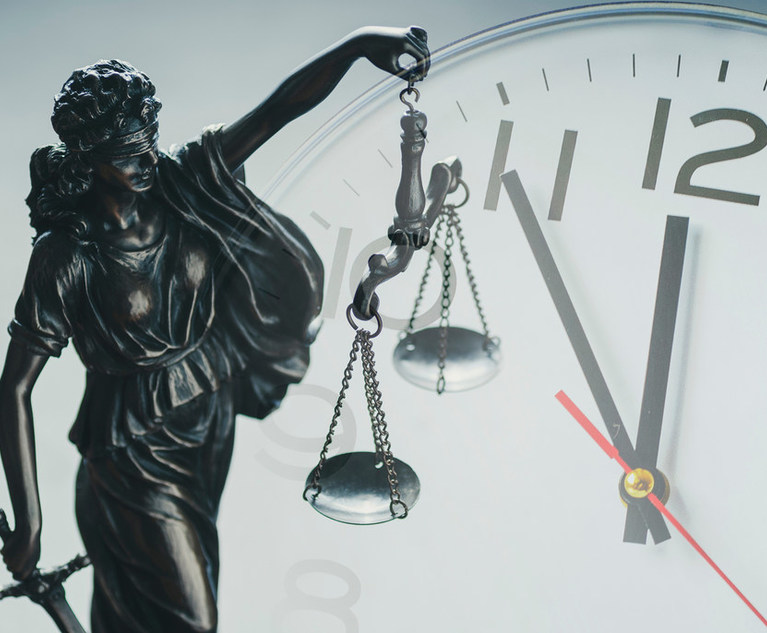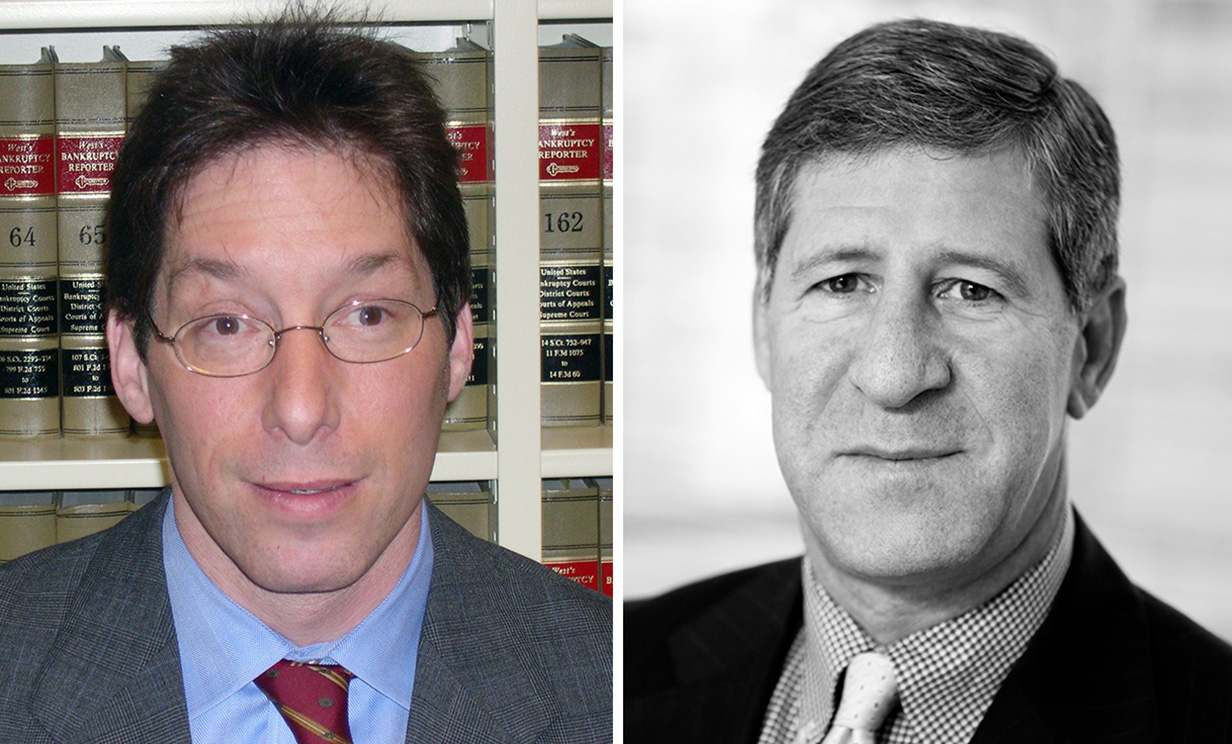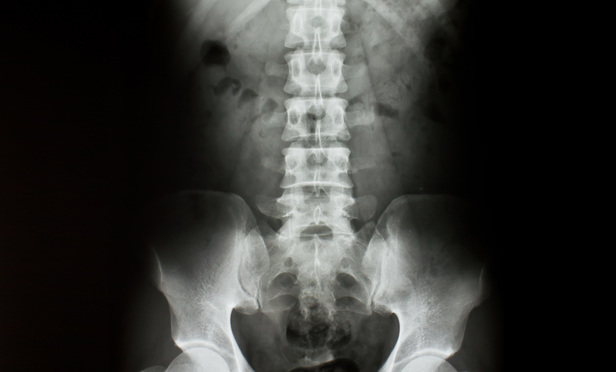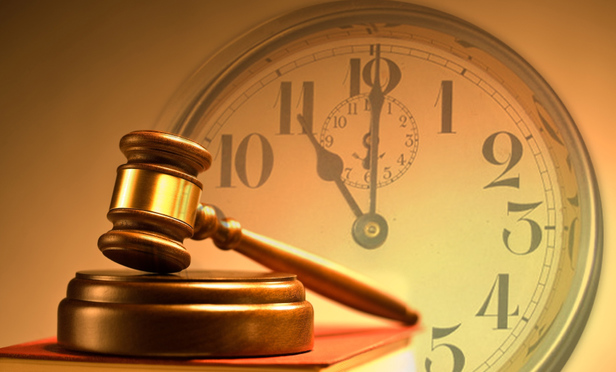Andrew S Kaufman

May 12, 2023 | New York Law Journal
The Need for Judicially Imposed Limits in the Interest of TimeAn argument for imposing time limits at trial by two attorneys who recently tried a case in the Southern District where the judge did just that.
By Andrew S. Kaufman and Betsy D. Baydala
4 minute read

April 15, 2020 | New York Law Journal
A Look Ahead at Personal Injury Litigation in the Wake of the PandemicAs the pandemic continues, there will no doubt be increasing pressure to conduct various proceedings, formally (such as court conferences) or informally (such as meetings with clients and experts).
By Andrew S. Kaufman
8 minute read

October 23, 2017 | New York Law Journal
The Missing Link in Lavern's LawPeter A. Kolbert and Andrew S. Kaufman write: It is time for thoughtful evaluation of New York state's tort laws as they apply to medical malpractice and personal injury cases. Lavern's Law should not be signed into law unless it is part of a broader effort to achieve fairness for all parties in medical malpractice cases.
By Peter A. Kolbert and Andrew S. Kaufman
17 minute read

May 15, 2017 | New Jersey Law Journal
How to Handle Hindsight Bias When Defending Radiology ClaimsErrors in perception form the basis for the vast majority of radiology malpractice claims. Such claims are susceptible to a pernicious and insidious form of bias on the part of plaintiff's expert as well as the jury.
By Andrew S. Kaufman
20 minute read

May 04, 2017 | New York Law Journal
How to Handle Hindsight Bias When Defending Radiology ClaimsAndrew S. Kaufman writes that suits against radiologists have become ubiquitous in our society, and the potential monetary exposure tends to be high. The vast majority of such claims are based on a radiologist's not appreciating an abnormality, a claim that is susceptible to a pernicious and insidious form of bias on the part of plaintiff's expert as well as the jury.
By Andrew S. Kaufman
21 minute read

April 14, 2015 | New York Law Journal
Justice Delayed: An Argument for Time Limits at TrialThere is no question that wide latitude should be accorded counsel and the court in terms of presentation of a case, but at some point does the excessive use of time becomes an abuse?
By Andrew S. Kaufman
4 minute read

April 13, 2015 | New York Law Journal
Justice Delayed: An Argument for Time Limits at TrialThere is no question that wide latitude should be accorded counsel and the court in terms of presentation of a case, but at some point does the excessive use of time becomes an abuse?
By Andrew S. Kaufman
4 minute read

April 18, 2012 | New York Law Journal
Admissibility of Scientific Literature in the Internet AgeAndrew S. Kaufman, a partner at Kaufman Borgeest & Ryan, writes that unlike the federal courts and a majority of state courts, New York has declined to recognize a hearsay exception that would permit admission of scientific literature. Some New York courts have created limited exceptions to the general prohibition on these materials, but this piecemeal approach to admissibility is not ideal, and does not address the concern that jurors already have unfettered access to these materials during the course of trial via the Internet.
By Andrew S. Kaufman
11 minute read

December 17, 2010 | Law.com
Social Networks in Personal Injury LitigationSocial network profiles are a fertile source of evidence for the condition and activities of a litigant in a personal injury claim. While privacy concerns may serve as an objection to disclosure, the nature of social networking tends to belie this position, says attorney Andrew S. Kaufman.
By Andrew S. Kaufman
11 minute read

August 13, 2007 | New York Law Journal
Is Your Case 'Noseworthy'?Andrew S. Kaufman, a partner at Kaufman Borgeest & Ryan, writes that the case of Noseworthy v. City of New Yorkis the seminal case in New York regarding a reduced burden of proof in a death case. The NoseworthyCourt held that a deceased plaintiff was entitled to a lesser burden of proof, where the death was the result of an accident allegedly due to the defendant's negligence.
By Andrew S. Kaufman
11 minute read
Trending Stories
- 1New York-Based Skadden Team Joins White & Case Group in Mexico City for Citigroup Demerger
- 2No Two Wildfires Alike: Lawyers Take Different Legal Strategies in California
- 3Poop-Themed Dog Toy OK as Parody, but Still Tarnished Jack Daniel’s Brand, Court Says
- 4Meet the New President of NY's Association of Trial Court Jurists
- 5Lawyers' Phones Are Ringing: What Should Employers Do If ICE Raids Their Business?



